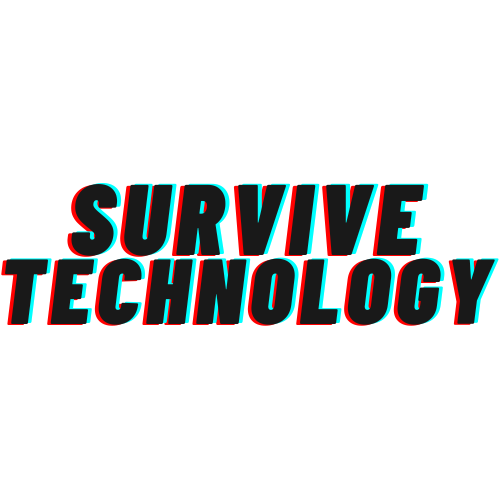Leveraging Decision Support Systems for Knowledge Management
11//20
There are a number of knowledge management tools. But how can you get useful information in it. How can we get people to contribute into the knowledge? Decision support systems can help organizations like patients for example with adding factual information from people. People can vote on satisfactions or dissatisfactions, and employee can critique a process for better or for worse. Decision support systems can motivate all users and organizations to participate and in some cases like on surveys one can remain unmanned.
Decision support systems according to the author of Knowledge management in theory and practice states “Such systems enable presumably more rational and even-handed decisions” (Dalkir, K. 2017, pg 313). Decision support systems are in theory designed to help with brainstorming, cause and affects, and other issues at bay. They be implemented in order for organizations like in health care to gather useful information for better patient care, and business guidance. When you look at a tool that one can use to gather knowledge in decision support systems organizations can implement tools such as surveying patients, customers, employees, contractors, and students. These systems are just as important for patient care to the everyday business operations for better decision making and knowledge transfer.
It is important to be clear of how you ask for information, “To avoid pitfalls created by blurred definitions and to introduce a vocabulary more apt for describing both why we collect information from patients and how we intend it be used for improving clinical practice, it is vital to clarify some key terms.” (M. Schlesinger,R. Grob, and D. Shaller. 2016, Pg 2121). The same goes for the organization in order to get employees and other important people to contribute to the decision support systems in order for internal and external uses. Healthcare can be very complicated and elaborate. Being able to implement a decision support system in more than just category is also keep. In table 5 of Organizational- and system-level characteristics that influence implementation of shared decision-making and strategies to address them - a scoping review, in organizational priorities “Integrate SDM into other interventions or changes (e.g., health coaching, chronic disease management program)”
In conclusion, Decision Support Systems are key for knowledge gathering, brainstorming, and participating. When you send out a properly worded survey that is easy to understand with the right questions it makes it a bit easier to gather knowledge for customer care, patient satisfaction, doctor routines, and other business aspects. It is important like more knowledge management systems to ask and distribute the right information in order to get better responses that’ll be useful for the organization decision making.
________________________________________________________________________________
References
Scholl, Isabelle, et al. (2018)"Organizational- and system-level characteristics that influence implementation of shared decision-making and strategies to address them -- a scoping review." Implementation Science, vol. 13, no. 1. Gale OneFile: Health and Medicine, https://link.gale.com/apps/doc/A546135287/HRCA?u=txshracd2679&sid=HRCA&xid=d6989403.
Schlesinger, M., Grob, R., & Shaller, D. (2015). Using Patient-Reported Information to Improve Clinical Practice. Health services research, 50 Suppl 2(Suppl 2), 2116–2154. https://doi.org/10.1111/1475-6773.12420
Dalkir, K. (2017). Knowledge management in theory and practice (Third). MIT Press.
Decision support systems according to the author of Knowledge management in theory and practice states “Such systems enable presumably more rational and even-handed decisions” (Dalkir, K. 2017, pg 313). Decision support systems are in theory designed to help with brainstorming, cause and affects, and other issues at bay. They be implemented in order for organizations like in health care to gather useful information for better patient care, and business guidance. When you look at a tool that one can use to gather knowledge in decision support systems organizations can implement tools such as surveying patients, customers, employees, contractors, and students. These systems are just as important for patient care to the everyday business operations for better decision making and knowledge transfer.
It is important to be clear of how you ask for information, “To avoid pitfalls created by blurred definitions and to introduce a vocabulary more apt for describing both why we collect information from patients and how we intend it be used for improving clinical practice, it is vital to clarify some key terms.” (M. Schlesinger,R. Grob, and D. Shaller. 2016, Pg 2121). The same goes for the organization in order to get employees and other important people to contribute to the decision support systems in order for internal and external uses. Healthcare can be very complicated and elaborate. Being able to implement a decision support system in more than just category is also keep. In table 5 of Organizational- and system-level characteristics that influence implementation of shared decision-making and strategies to address them - a scoping review, in organizational priorities “Integrate SDM into other interventions or changes (e.g., health coaching, chronic disease management program)”
In conclusion, Decision Support Systems are key for knowledge gathering, brainstorming, and participating. When you send out a properly worded survey that is easy to understand with the right questions it makes it a bit easier to gather knowledge for customer care, patient satisfaction, doctor routines, and other business aspects. It is important like more knowledge management systems to ask and distribute the right information in order to get better responses that’ll be useful for the organization decision making.
________________________________________________________________________________
References
Scholl, Isabelle, et al. (2018)"Organizational- and system-level characteristics that influence implementation of shared decision-making and strategies to address them -- a scoping review." Implementation Science, vol. 13, no. 1. Gale OneFile: Health and Medicine, https://link.gale.com/apps/doc/A546135287/HRCA?u=txshracd2679&sid=HRCA&xid=d6989403.
Schlesinger, M., Grob, R., & Shaller, D. (2015). Using Patient-Reported Information to Improve Clinical Practice. Health services research, 50 Suppl 2(Suppl 2), 2116–2154. https://doi.org/10.1111/1475-6773.12420
Dalkir, K. (2017). Knowledge management in theory and practice (Third). MIT Press.

.png)